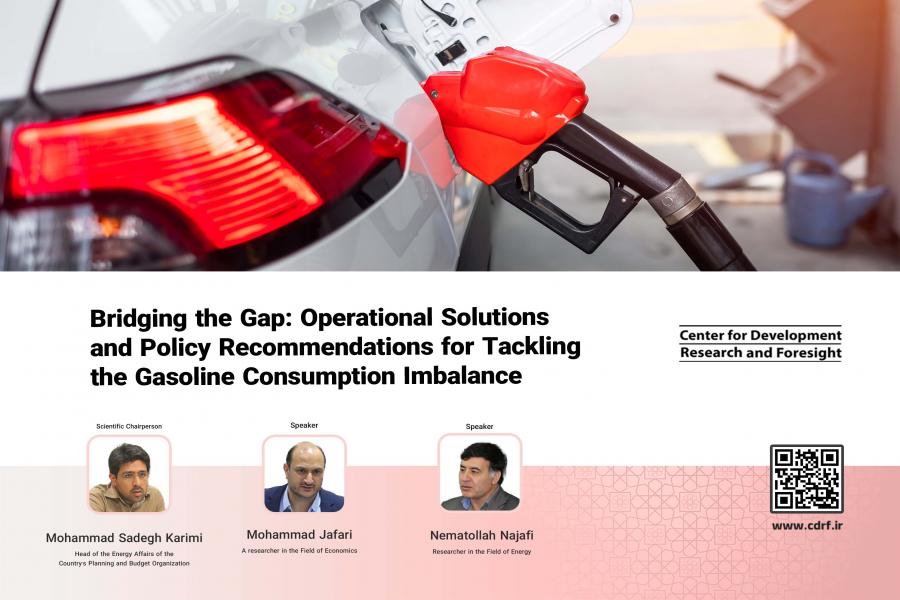
-
بررسی آییننامهها و دستورالعملهای برنامه هفتم پیشرفت
-
بررسی عوامل موثر بر افزایش تصادفات و تلفات جادهای و سوانح رانندگی و دادهکاوی تلفات انسانی
-
سازماندهی و بازآرایی فضایی آموزش عالی کشور
-
به روز رسانی سند ملی آمایش سرزمین
-
انجام مطالعات مناطق آزاد به عنوان نواحی پیشران اقتصادی کشور
-
اصلاح ساختار بودجه و پیاده سازی نظام یکپارچه مدیریت اطلاعات مالی دولت (IFMIS)

Iran is facing a growing problem at the pump. The country is burning through gasoline at an alarming rate, and experts are calling for action. In the recent conference titled “Bridging the Gap: Operational Solutions and Policy Recommendations for Tackling the Gasoline Consumption Imbalance” at the Center for Development Research and Foresight, key figures from government and academia discussed a range of solutions to bridge the gap between Iran's fuel consumption and supply.
One strategy on the table? Raising gas prices. Experts believe a higher price tag could discourage drivers from filling up so frequently. But there's a catch: such a move could hit low-income Iranians the hardest.
Another option being floated? Letting the market decide. Removing government control over fuel prices could lead to a more efficient system, with prices fluctuating based on supply and demand. However, this approach might also lead to price hikes, raising concerns about economic hardship.
The conversation didn't stop there. Experts also highlighted the potential of alternative fuels. Could electric vehicles, natural gas, or even biofuels become the future of transportation in Iran? It's a tempting option, but challenges remain. Building the infrastructure to support these new energy sources would be a major undertaking, not to mention potentially high production costs and the need to convince drivers to switch.
So, what's the answer? The experts believe a multi-pronged approach might be the key. This could involve a combination of increasing domestic gasoline production, making refineries more efficient, and encouraging drivers to use less fuel through public transportation initiatives and promoting fuel-efficient vehicles.
But finding the right balance won't be easy. Striking a compromise between ensuring affordable fuel for all and promoting sustainable consumption practices is crucial. Iran's fight against the gas guzzle is just beginning, and the world will be watching to see which solutions they choose to fill their fuel tank.



